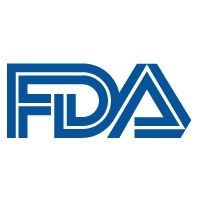Article
New Indication for Empagliflozin
Author(s):
Empagliflozin was approved to reduce heart and stroke risk in patients with diabetes.

The US Food and Drug Administration today approved a new indication for Jardiance empagliflozin, (Jardiance/ Boehringer Ingelheim Pharmaceuticals) to reduce the risk of cardiovascular death in adult patients with type 2 diabetes mellitus and cardiovascular disease.
According to the Centers for Disease Control and Prevention, death from cardiovascular disease is 70% higher in adults with diabetes compared to those without diabetes, and patients with diabetes have a decreased life expectancy driven in large part by premature cardiovascular death.
The FDA’s decision is based on a post-marketing study required by the agency when it approved Jardiance in 2014 as an adjunct to diet and exercise to improve glycemic control in adults with type 2 diabetes mellitus. Jardiance was studied in a post-market clinical trial of more than 7,000 patients with type 2 diabetes and cardiovascular disease. In the trial, Jardiance was shown to reduce the risk of cardiovascular death compared to a placebo when added to standard of care therapies for diabetes and atherosclerotic cardiovascular disease.
Jardiance can cause dehydration and low blood pressure (hypotension). Jardiance can also cause increased ketones in the blood (ketoacidosis), serious urinary tract infection, acute kidney injury and impairment in renal function, low blood glucose (hypoglycemia) when used with insulin or insulin secretagogues (e.g. sulfonylurea, a medication used to treat type 2 diabetes by increasing the release of insulin in the pancreas), vaginal yeast infections and yeast infections of the penis (genital mycotic infections), and increased cholesterol.
The most common side effects of Jardiance are urinary tract infections and female genital infections.
Jardiance is not intended for patients with type 1 diabetes mellitus or for the treatment of diabetic ketoacidosis. Jardiance is contraindicated in patients with a history of serious hypersensitivity reactions to Jardiance, severe renal impairment, end-stage renal disease, or dialysis.
The FDA issued a news release on the approval.





